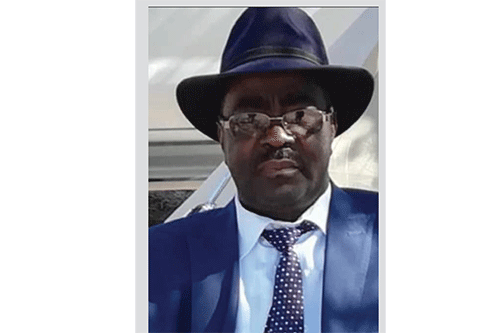I met Rikuetjua Tjombonde sometime in the spring of 1993. This was after I started writing scripts for After 9, a television programme on NBC. Rikuetjua was then the organiser of TV Domestic Programmes within the television department. This first encounter marked the beginning of our longstanding friendship.
I worked with him until I left the NBC in the summer of 2001. In between, we shared a close relationship that would prove helpful when I married into his family.
Having closely worked with and known Rikuetjua over the last few years, I learned much about his love for his family. They were never far from his thoughts in everything he did. Rikuetjua was a kind soul.
Rikuetjua was committed to transforming our section and always supporting everyone on the team without hesitation.
He had the unwavering patience required to successfully teach anyone what they needed to know.
He spent many hours teaching me video editing and camera directing.
For a 19-year-old, inexperienced trainee, he understood that he had a duty to ensure that I had to be good at my job so that we did not provide ammunition for those who wished us to fail. There were a few black faces in the organisation at that time.
Apart from Rikuetjua, I count, among others, Stanley Similo, Carlos Kambaekwa, Hilda Basson, Vicky Ashipala and Helen Shiimbi. When I needed to rehearse for my driver’s licence in April 1995, he offered to help – alternating with the late Willie Mbuende until I mastered the vehicle to be comfortable enough to take the test.
He was a kind soul. On one occasion, I travelled with him to Aminuis, the seat of the Bakgalagadi Traditional Authority under the late Kgosi Kgolo Herbert Tidimalo Ditshabue, for the cultural festival.
He volunteered to stand in as a cameraman when no one was available. I had wrongly assumed that he had organised accommodation with someone he knew. I took only a bucket of chicken, which we would feast on for the entire weekend.
Only when we arrived did I learn we would sleep in the back of a car – something I had never experienced before. I fell sick on the first night. He laughed. I did not think for a minute that it was a joke. Kgosi Ditshabue offered a place to sleep in the palace.
Rikuetjua experienced some health challenges a few years later.
But that did not deter him. He was motivated and reliable, offering help even into the late hours of the night and ensuring that his colleagues had the support they needed during their work.
He remained efficient and hard working until discharged from work on medical grounds. He was a kind soul. I saw him at the hospital after that.
Over the past Easter holidays, I visited him and his wife in Otjiwarongo. Conversations went from our times at the NBC in the 1990s to what we are doing now.
He reminded me of his daughter’s wedding scheduled for later that June, for which he had previously invited me. Little did I know that it would be my last time seeing him.
It was a privilege for me to have been part of Rikuetjua’s life.
I honour him by profoundly feeling and expressing my loss and remembering Rikuetjua as an amazing person who has played a special role in my life.
His caring nature, his moral view of a troubled world and his stubborn commitment to do something good to change it will be qualities that will be missed. Although much too short, his was a life well lived!
* Audrin Mathe is the executive director of the Ministry of Information and Communication Technology.


